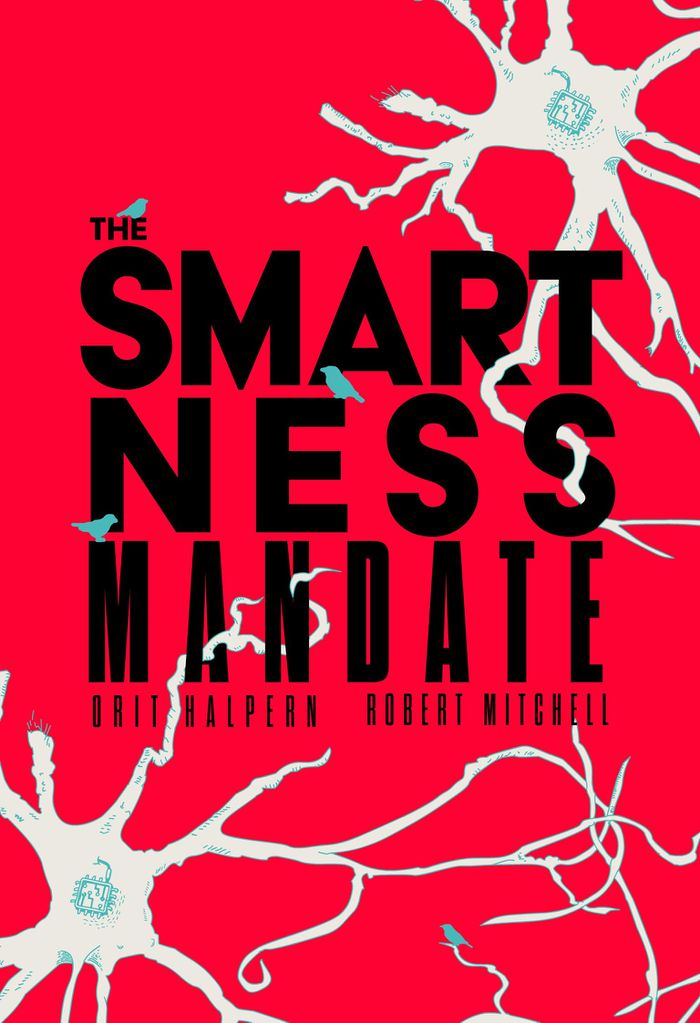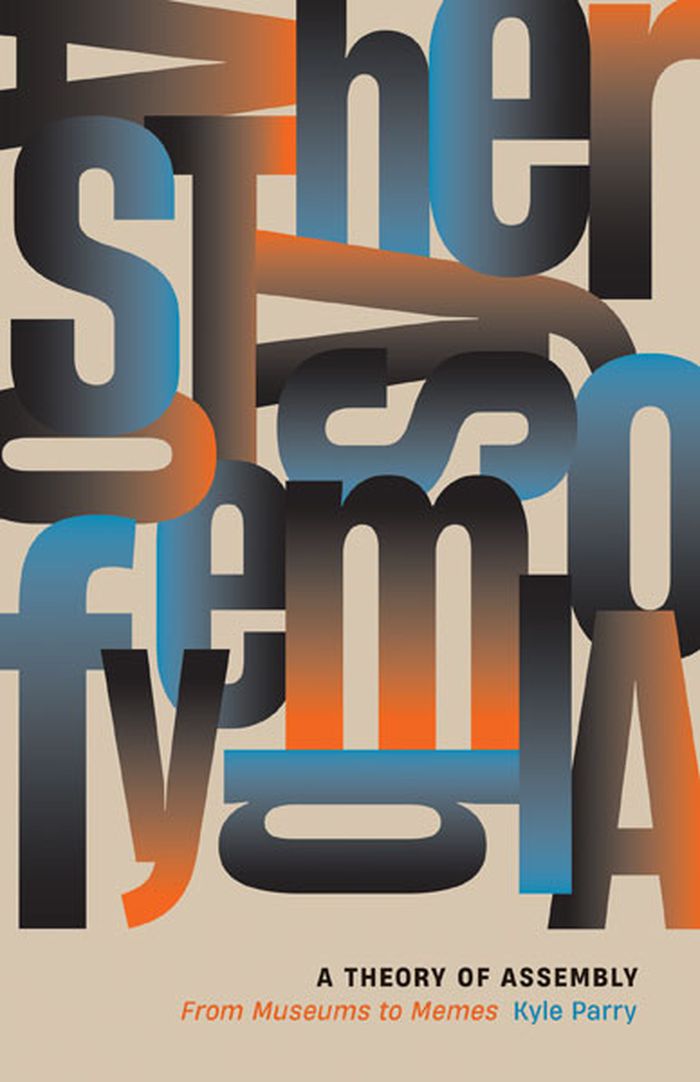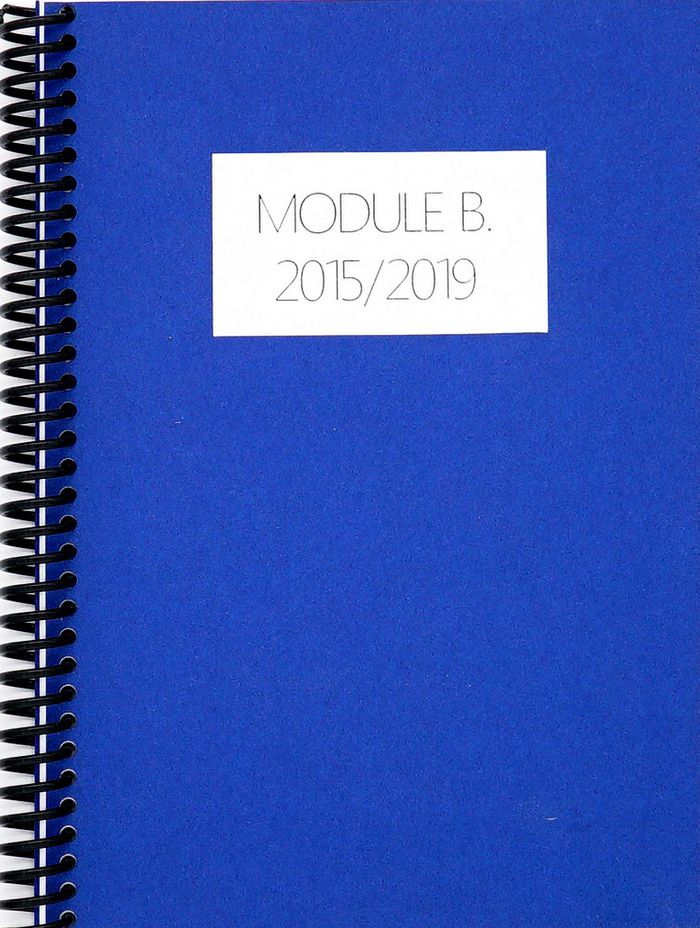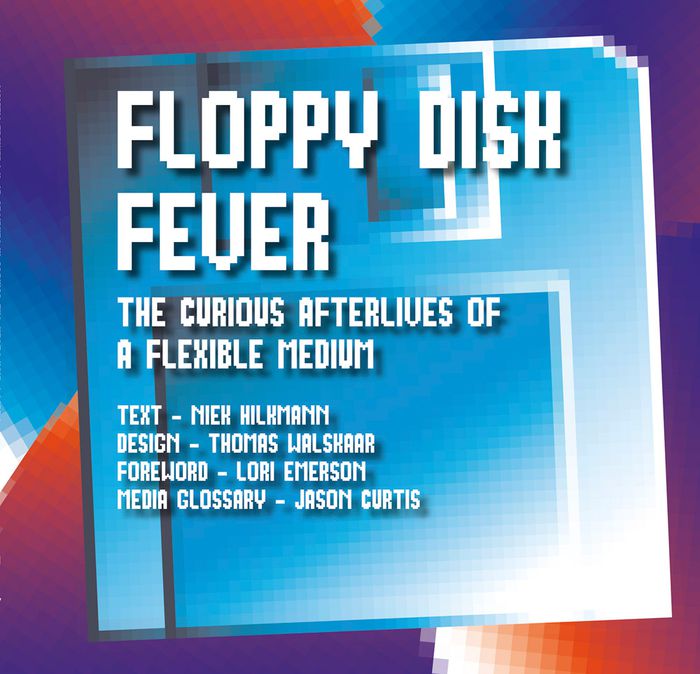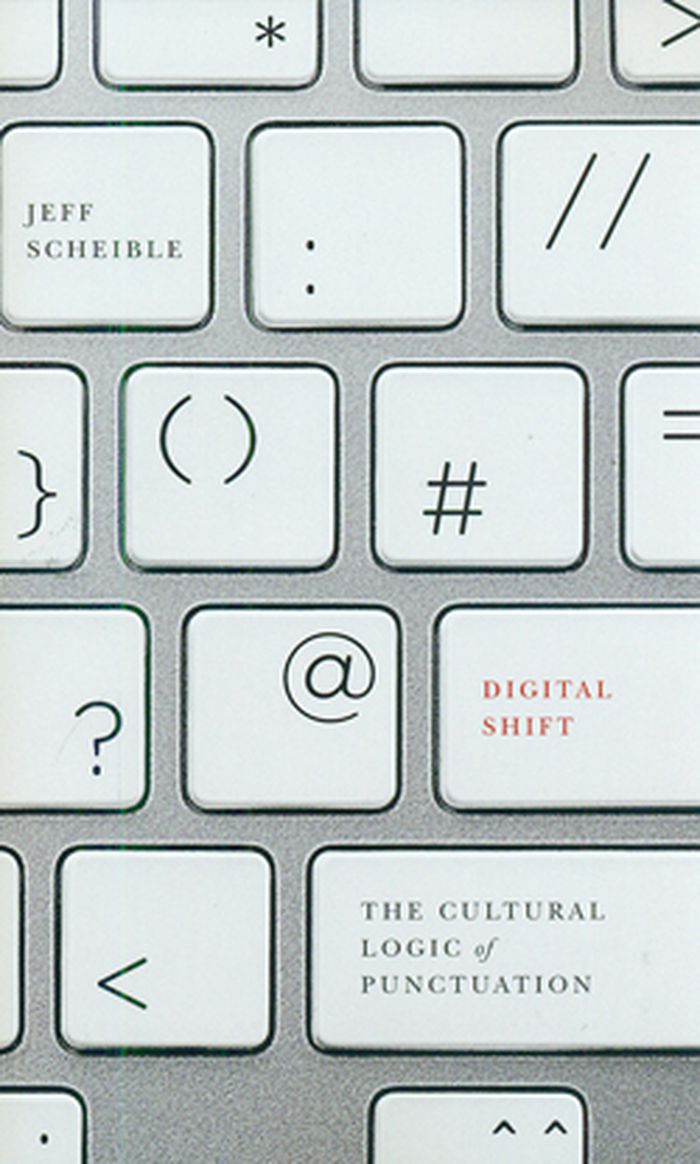The smartness mandate
$47.00
(available to order)
Summary:
In this book, the authors suggest that "smartness" is not primarily a technology, but rather an epistemology. Through this lens, they offer a critical exploration of the practices, technologies, and subjects that such an understanding relies upon—above all, artificial intelligence and machine learning. They approach these not simply as techniques for solving problems of(...)
Archive, library and the digital
December 2022
The smartness mandate
Actions:
Price:
$47.00
(available to order)
Summary:
In this book, the authors suggest that "smartness" is not primarily a technology, but rather an epistemology. Through this lens, they offer a critical exploration of the practices, technologies, and subjects that such an understanding relies upon—above all, artificial intelligence and machine learning. They approach these not simply as techniques for solving problems of calculations, but rather as modes of managing life (human and other) in terms of neo-Darwinian evolution, distributed intelligences, and "resilience," all of which have serious implications for society, politics, and the environment.
Archive, library and the digital
$47.00
(available to order)
Summary:
The only way to handle data responsibly, says Melanie Feinberg in this incisive work, is to take into account its human character. Though the data she discusses may seem familiar, close scrutiny shows it to be ambiguous, complicated, and uncertain: unruly. Drawing on the tools of information science, she uses everyday events to demonstrate a practical, critical, and(...)
Everyday adventures with unruly data
Actions:
Price:
$47.00
(available to order)
Summary:
The only way to handle data responsibly, says Melanie Feinberg in this incisive work, is to take into account its human character. Though the data she discusses may seem familiar, close scrutiny shows it to be ambiguous, complicated, and uncertain: unruly. Drawing on the tools of information science, she uses everyday events to demonstrate a practical, critical, and generative mode of thinking about data: its creation, management, aggregation, and use. As she reflects on the implications of commonplace events, Feinberg explicates fundamental concepts of data that reveal the many tiny design decisions—which may not even seem like design at all—that shape how data comes to be. Through the themes of serendipity, objectivity, equivalence, interoperability, taxonomy, labels, and locality, she illuminates the surprisingly pervasive role of data in our daily thoughts and lives.
Archive, library and the digital
$41.99
(available to order)
Summary:
Digital and social media have transformed how much and how fast we communicate, but they have also altered the palette of expressive strategies: the cultural forms that shape how citizens, activists, and artists speak and interact. Most familiar among these strategies are storytelling and representation. In A Theory of Assembly, Kyle Parry argues that one of the most(...)
January 2023
A theory of assembly: From museums to memes
Actions:
Price:
$41.99
(available to order)
Summary:
Digital and social media have transformed how much and how fast we communicate, but they have also altered the palette of expressive strategies: the cultural forms that shape how citizens, activists, and artists speak and interact. Most familiar among these strategies are storytelling and representation. In A Theory of Assembly, Kyle Parry argues that one of the most powerful and pervasive cultural forms in the digital era is assembly. Whether as subtle photographic sequences, satirical Venn diagrams, or networked archives, projects based in assembly do not so much narrate or represent the world as rearrange it. This work of rearranging can take place at any scale, from a simple pairing of images, undertaken by one person, to the entire history of internet memes, undertaken by millions. With examples ranging from GIFs and paintings to museum exhibitions and social movement hashtags, Parry shows how, in the internet age, assembly has come to equal narrative and representation in its reach and influence, particularly as a response to ecological and social violence. He also emphasizes the ambivalence of assembly—the way it can be both emancipatory and antidemocratic.
Archives and Utopia
$21.00
(available to order)
Summary:
Traditional archivism runs the risk of perpetuating hegemonic ways of thinking by anticipating what will be of importance in the future through the framework of present-day realities and power structures. These genre-busting ruminations gather new methods for designing views of potential worlds and forms of archival activism.
Archive, library and the digital
December 2022
Archives and Utopia
Actions:
Price:
$21.00
(available to order)
Summary:
Traditional archivism runs the risk of perpetuating hegemonic ways of thinking by anticipating what will be of importance in the future through the framework of present-day realities and power structures. These genre-busting ruminations gather new methods for designing views of potential worlds and forms of archival activism.
Archive, library and the digital
Module B. 2015/2019
$20.00
(available in store)
Summary:
MODULE B. interroge la bibliothèque en tant qu’espace de classement, de présentation et de collection d’un savoir personnel ou collectif. À l’ère du numérique, il s’agit aussi de dégager la signification de la bibliothèque, sa manière d’agencer un espace, sa définition matérielle et les formes de sa virtualisation. Lors de l’inauguration du projet MODULE B. en 2015, le(...)
Module B. 2015/2019
Actions:
Price:
$20.00
(available in store)
Summary:
MODULE B. interroge la bibliothèque en tant qu’espace de classement, de présentation et de collection d’un savoir personnel ou collectif. À l’ère du numérique, il s’agit aussi de dégager la signification de la bibliothèque, sa manière d’agencer un espace, sa définition matérielle et les formes de sa virtualisation. Lors de l’inauguration du projet MODULE B. en 2015, le visiteur était amené à remplir l’une des 16 fiches du répertoire créé pour l’occasion, portant chacune un intitulé différent, une interrogation particulière sur la définition d’une bibliothèque, à travers un prisme différent. Suite à l’exposition de Module B. à hon\ books en 2019, antoine lefebvre editions publie la collection des fiches recueillies par le collectif.
Archive, library and the digital
$25.00
(available to order)
Summary:
This volume explores the curious afterlives of the floppy disk in the 21st century through the work of those involved with the medium today. The book reflects on notions of obsolescence, media preservation and nostalgia, and challenges these by showing the endurance and versatility of this familiar piece of technology. From floppy filmmakers to floppy painters and beyond:(...)
Archive, library and the digital
November 2022
Floppy disk fever: The curious afterlives of a flexible medium
Actions:
Price:
$25.00
(available to order)
Summary:
This volume explores the curious afterlives of the floppy disk in the 21st century through the work of those involved with the medium today. The book reflects on notions of obsolescence, media preservation and nostalgia, and challenges these by showing the endurance and versatility of this familiar piece of technology. From floppy filmmakers to floppy painters and beyond: what drives people to continue working with the medium that is typically deemed obsolete? What challenges and affordances does it provide? And what does the future hold in store for the familiar black square? By looking at the current presence of past technology we can assess our present-day situation and speculate on the future developments of our media landscape. After all, the technology of the past is also part of our future. This volume features interviews with key players in the contemporary floppy-disk world, including not only artists and filmmakers using floppy disks in their practice but also businessmen, archivists and museum proprietors working to preserve the medium.
Archive, library and the digital
$27.95
(available to order)
Summary:
Emoticons matter. Equal signs do, too. This book takes them seriously and shows how and why they matter. Digital Shift explores the increasingly ubiquitous presence of punctuation and typographical marks in our lives using them as reading lenses to consider a broad range of textual objects and practices across the digital age.
Digital shift: the cultural logic of punctuation
Actions:
Price:
$27.95
(available to order)
Summary:
Emoticons matter. Equal signs do, too. This book takes them seriously and shows how and why they matter. Digital Shift explores the increasingly ubiquitous presence of punctuation and typographical marks in our lives using them as reading lenses to consider a broad range of textual objects and practices across the digital age.
Archive, library and the digital
The anthrobscene
$13.95
(available in store)
Summary:
Smartphones, laptops, tablets, and e-readers all at one time held the promise of a more environmentally healthy world not dependent on paper and deforestation. The result of our ubiquitous digital lives is, as we see in The Anthrobscene, actually quite the opposite: not ecological health but an environmental wasteland, where media never die. Jussi Parikka critiques(...)
The anthrobscene
Actions:
Price:
$13.95
(available in store)
Summary:
Smartphones, laptops, tablets, and e-readers all at one time held the promise of a more environmentally healthy world not dependent on paper and deforestation. The result of our ubiquitous digital lives is, as we see in The Anthrobscene, actually quite the opposite: not ecological health but an environmental wasteland, where media never die. Jussi Parikka critiques corporate and human desires as a geophysical force, analyzing the material side of the earth as essential for the existence of media and introducing the notion of an alternative deep time in which media live on in the layer of toxic waste we will leave behind as our geological legacy.
Archive, library and the digital
$24.95
(available to order)
Summary:
A riveting investigation of a beloved library caught in the crosshairs of real estate, power, and the people's interests by the reporter who broke the story.In a series of cover stories for "The Nation" magazine, journalist Scott Sherman uncovered the ways in which Wall Street logic almost took down one of New York City's most beloved and iconic institutions: the New York(...)
Patience and fortitude: power, real estate, and the fight to save a public library
Actions:
Price:
$24.95
(available to order)
Summary:
A riveting investigation of a beloved library caught in the crosshairs of real estate, power, and the people's interests by the reporter who broke the story.In a series of cover stories for "The Nation" magazine, journalist Scott Sherman uncovered the ways in which Wall Street logic almost took down one of New York City's most beloved and iconic institutions: the New York Public Library. In the years preceding the 2008 financial crisis, the library's leaders forged an audacious plan to sell off multiple branch libraries, mutilate a historic building, and send millions of books to a storage facility in New Jersey. Patience and Fortitude is at once a readable history of the library's secret plans, and a stirring account of a rare triumph against the forces of money and power.
Archive, library and the digital
A prehistory of the cloud
$34.95
(available to order)
Summary:
We may imagine the digital cloud as placeless, mute, ethereal, and unmediated. Yet the reality of the cloud is embodied in thousands of massive data centers, any one of which can use as much electricity as a midsized town. Even all these data centers are only one small part of the cloud. Behind that cloud-shaped icon on our screens is a whole universe of technologies and(...)
A prehistory of the cloud
Actions:
Price:
$34.95
(available to order)
Summary:
We may imagine the digital cloud as placeless, mute, ethereal, and unmediated. Yet the reality of the cloud is embodied in thousands of massive data centers, any one of which can use as much electricity as a midsized town. Even all these data centers are only one small part of the cloud. Behind that cloud-shaped icon on our screens is a whole universe of technologies and cultural norms, all working to keep us from noticing their existence. In this book, Tung-Hui Hu examines the gap between the real and the virtual in our understanding of the cloud.
Archive, library and the digital
